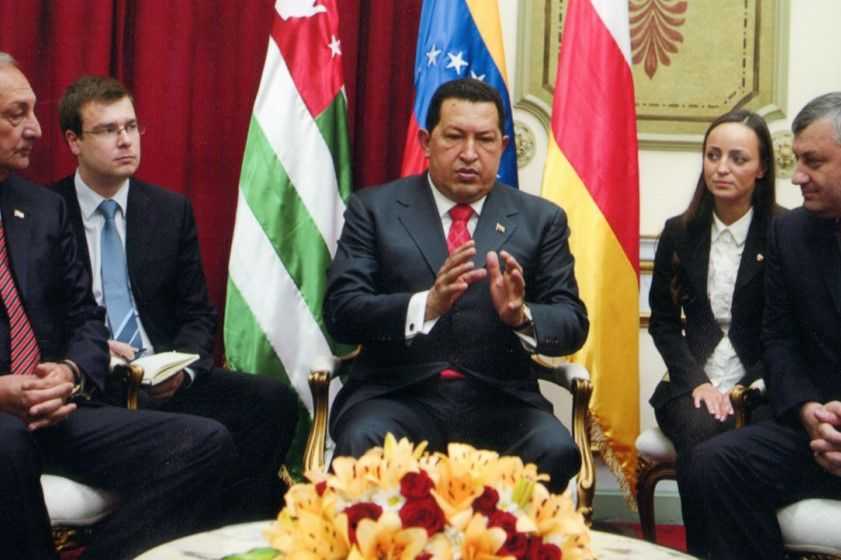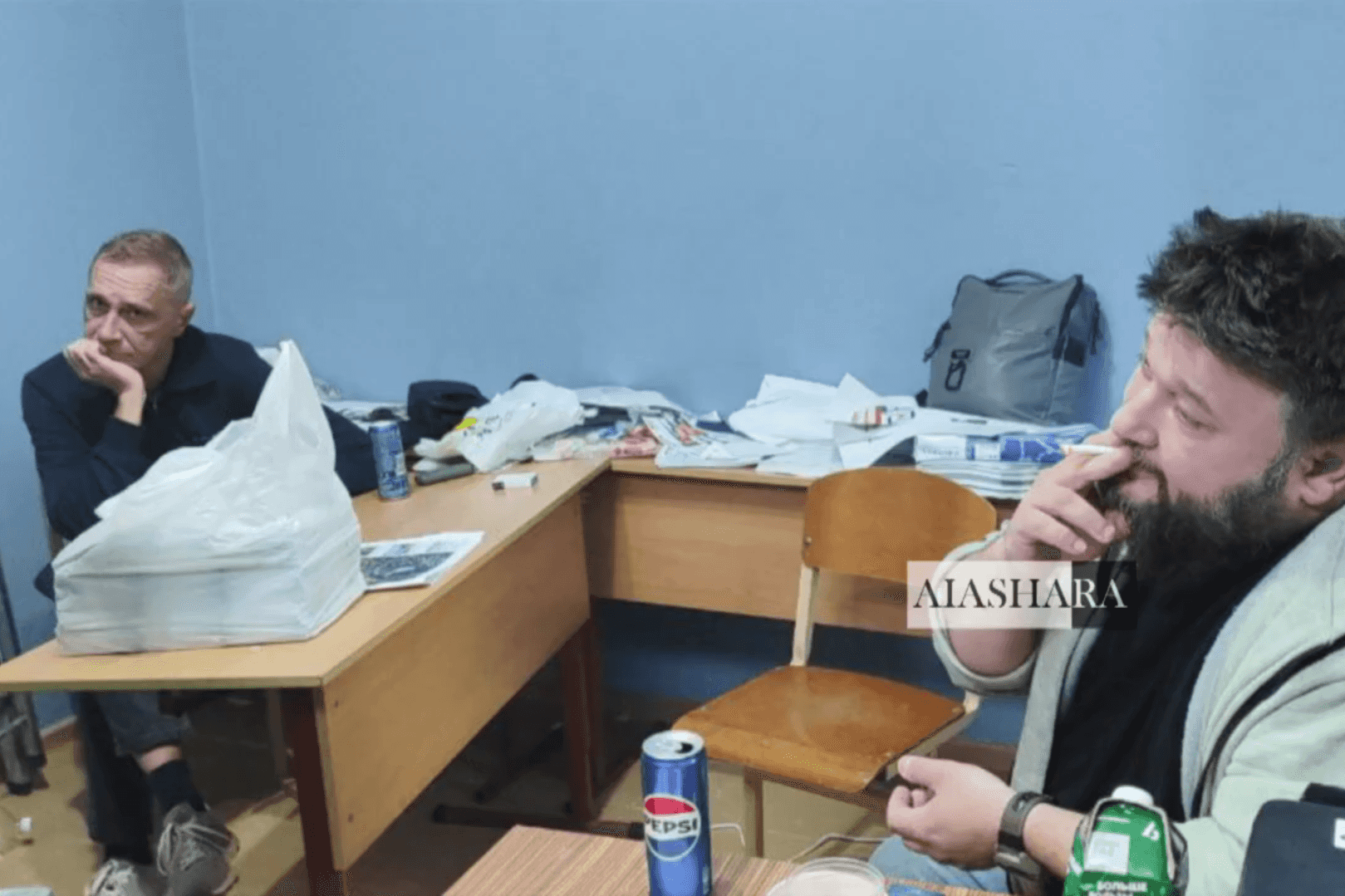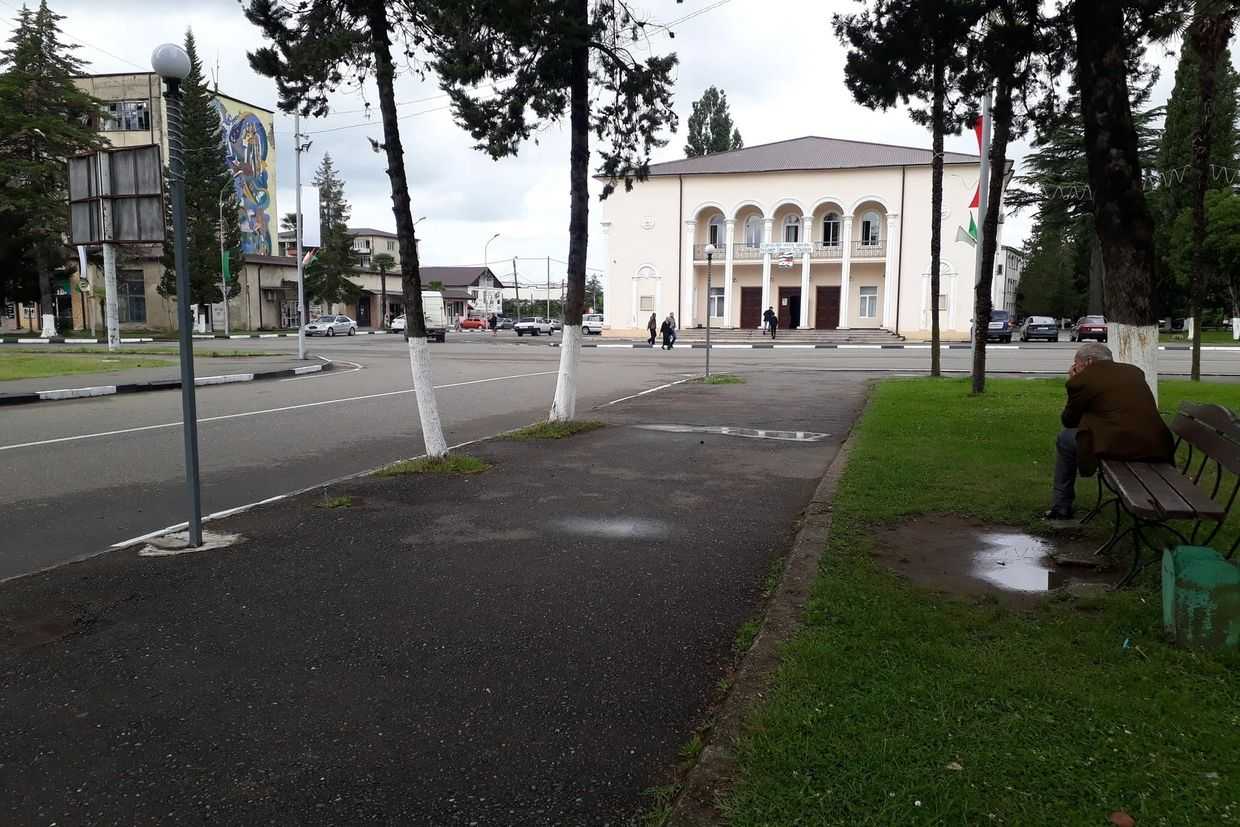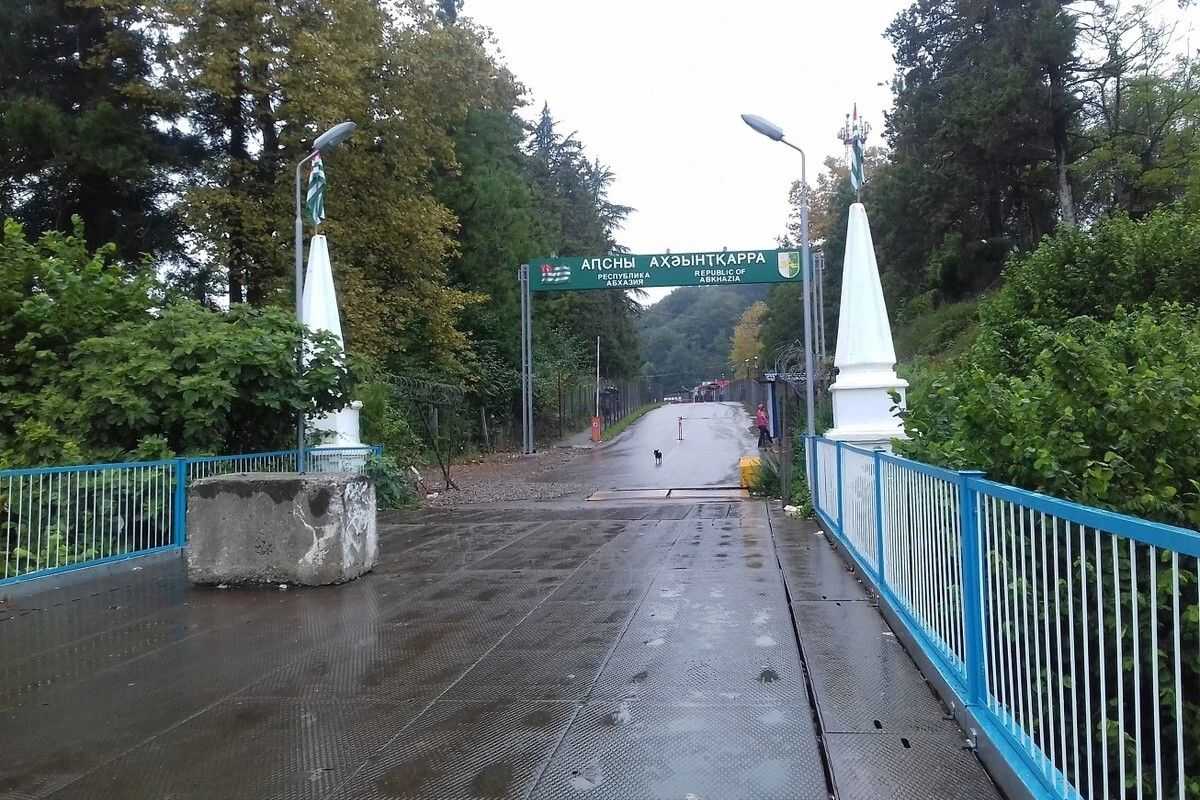
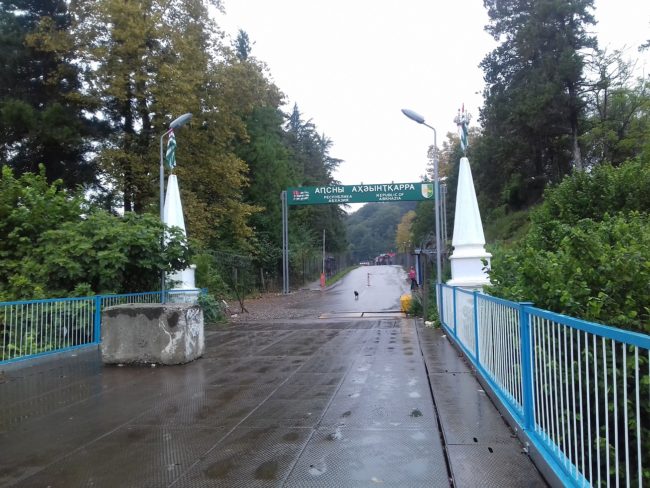
 The authorities in Abkhazia plan to open a customs post at the checkpoint on the River Enguri (Ingur), which separates Abkhazia from Tbilisi-controlled territory.
The authorities in Abkhazia plan to open a customs post at the checkpoint on the River Enguri (Ingur), which separates Abkhazia from Tbilisi-controlled territory.
Beslan Tsvinariya, Chair of Abkhazia’s Customs Committee, said at a press conference on 14 December, ‘if we are a state, a customs post should be [functioning] on the Ingur border’.
According to Russian state-run news agency Sputnik Abkhkazia, Tsvinariya claimed it is ‘necessary to define the list of goods that should be prohibited from entering the territory of Abkhazia from the east [Georgia]’, while tariffs need to be introduced on all other goods. Sputnik writes that alcohol, citrus fruits, and tobacco are among the restricted goods.
OC Media has reached out to Georgia’s State Ministry for Reconciliation and Civic Equality for a comment.
The initiative follows a similar plan in South Ossetia, who reiterated in November that they planned to open a customs post in Akhalgori (Leningor), a Georgian-populated settlement bordering Georgian-controlled territory. The Georgian authorities said ‘no customs service can exist at the occupation line’.
According to Giorgi Kanashvili, executive director of Tbilisi-based peacebuilding organisation Caucasian House, both for Abkhazia and South Ossetia, the aim of their initiatives is not to restrict the movement of locals, but to regulate trade.
‘In both cases, different goods enter from Georgian-controlled territory and they [Abkhazia and South Ossetia] claim they lose income. This [initiative] seems like an attempt to regulate their finances, but given the high levels of corruption in both cases, I believe that drastic changes in this direction are not probable’, Kanashvili said.
According to him, in reality, a post serving as a ‘customs service’ already exists, and the initiative is meant to further control the flow of goods in a more coordinated way.
Ekho Kavkaza, RFE/RL’s Russian-language service covering Georgia and the disputed regions, quoted Tsvinariya as saying the Abkhazian Customs Committee received new equipment from the Russian Federal Customs Service, which will ‘increase transparency […] and will ease the job of customs officers’.
According to Kanashvili, even if the initiative is implemented in Abkhazia, it will not change much for the ethnic Georgian population of Gali (Gal) in the east of Abkhazia, as local authorities there have already taken steps to hinder their movement.
In March 2017, Abkhazia closed two of the three remaining checkpoints between Abkhazia and Tbilisi-controlled territory — the Khurcha–Nabakevi (Bataiguara) and Orsantia–Otobaia (Bgoura) crossings.
The customs post will reportedly be installed at the last remaining checkpoint, at the Enguri Bridge.
For ease of reading, we choose not to use qualifiers such as ‘de facto’, ‘unrecognised’, or ‘partially recognised’ when discussing institutions or political positions within Abkhazia, Nagorno-Karabakh, and South Ossetia. This does not imply a position on their status.



